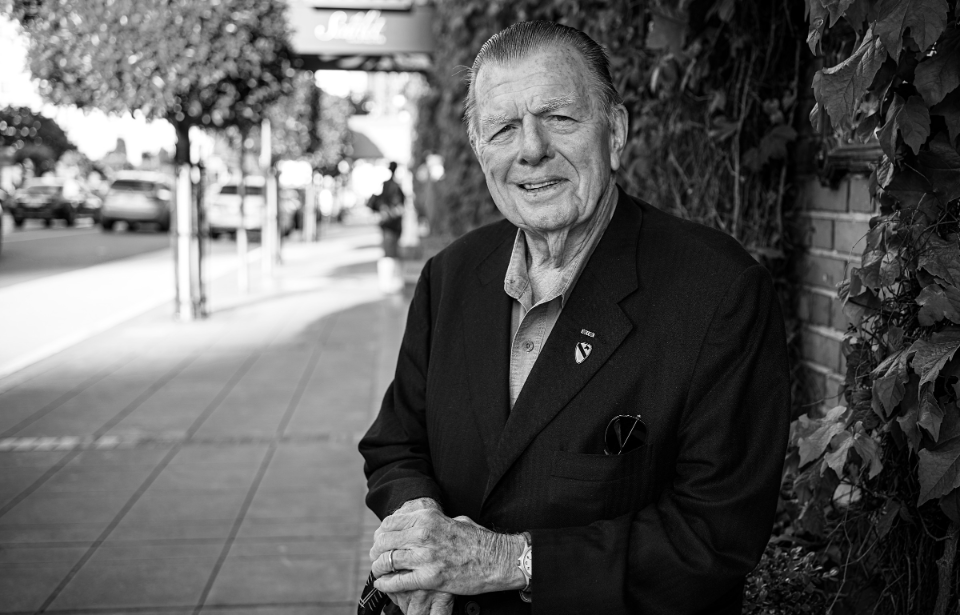Joe Galloway is certainly a well-known name to those familiar with the Vietnam War. Whether through his book, We Were Soldiers Once… And Young, or the Hollywood film of the same name, the story he tells of the conflict is brutal, honest and powerful. Who is the man behind the pen and many photographs taken on the battlefield? Discover the real Joe Galloway and his life before, during and after working as a war correspondent in Vietnam.
Joe Galloway’s early life
Joseph “Joe” Galloway was born in Bryan, Texas on November 13, 1941. Military service ran in his family, with his father serving in the US Army during the Second World War and his two great-grandfathers having fought in the American Civil War. After his high school graduation, Galloway attended community college, but soon found himself following in his father’s footsteps and joining the Army. At his mother’s advice, he decided to pursue journalism, as well.
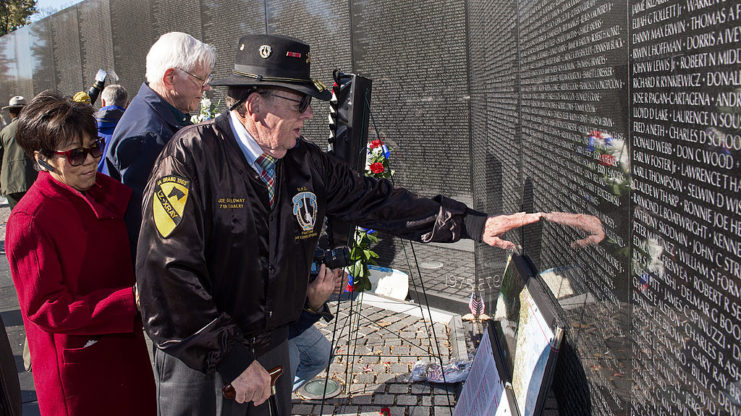
Galloway majored in journalism at Victoria College. Although, at the time, he likely couldn’t foresee just how impactful this path would be. He first worked for The Victoria Advocate in Texas, before taking a position with United Press International (UPI) in 1961. While in this post, he found himself working in Tokyo, Jakarta, New Delhi, Singapore, Moscow, Los Angeles and, most famously, Vietnam.
War correspondent in Vietnam
Joe Galloway was sent to Vietnam as a war correspondent in 1965 for 16 months, and returned in ’71, ’73 and ’75. This first tour, however, was where he truly made a name for himself. He arrived with the US Marine Corps, but soon began traveling with 1st Battalion, 7th Cavalry Regiment, commanded by Lt. Col. Hal Moore.
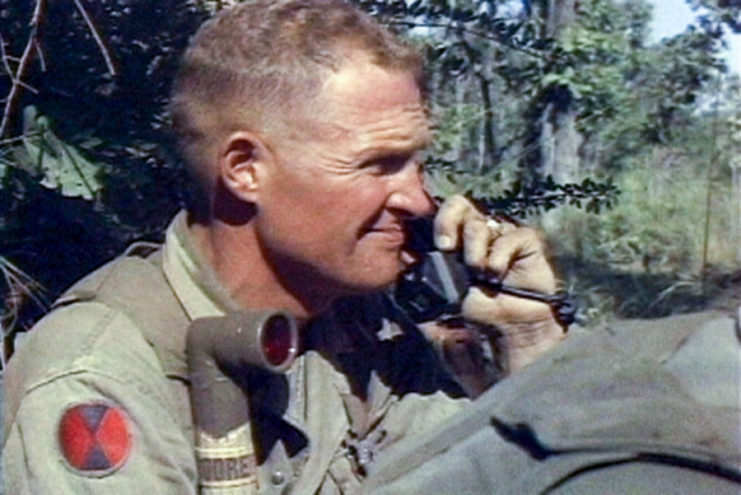
Galloway focused on telling the stories of the soldiers he was living alongside and using their experiences as the crux of his reporting. Although he was in Vietnam as a journalist, he carried a weapon, as he felt it unlikely the enemy would check his ID before shooting him. As he phrased it, “I grew up in Texas. If you shoot at me, it really p****s me off. I’m going to shoot back.”
This was certainly an unusual move for a journalist and it caught people’s attention. When Võ Nguyên Giáp met him, he mused, “Ah yes, the reporter who carried a rifle. I heard about you.”
Battle of Ia Drang
Joe Galloway was with Hal Moore and his troops when they fought in the Battle of Ia Drang, the first major engagement between the US Army and the North Vietnamese. Moore’s men disembarked at Landing Zone X-Ray, where the bulk of their combat took place.
An additional American force engaged in battle at Landing Zone Albany, located farther north in the Ia Drang Valley.
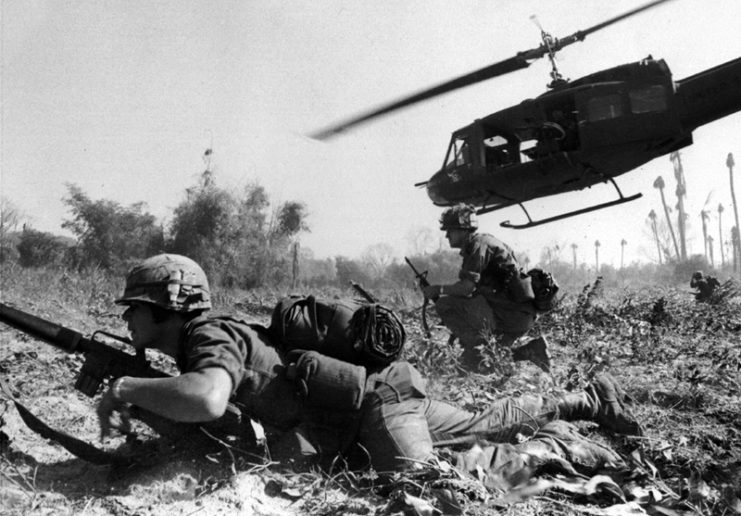
Ia Drang played an incredibly important role in the war and was, as described by Galloway years after, “the battle that convinced Hồ Chí Minh he could win.” It set the stage for how the conflict layer played out, with the Americans heavily relying on the use of helicopters and other forms of air support.
The North Vietnamese Army (NVA), on the other hand, realized they could easily combat this power imbalance by engaging the Americans quickly and at close range. Ultimately, both sides claimed victory in the battle.
“He was a soldier”
While Joe Galloway wasn’t a soldier and was there to take notes and photographs, he became an integral part of the team when the Battle of Ia Drang turned deadly. He “carried my own M16, and I went to that battle carrying a lot of ammo.” He also brought water to the troops and aided the wounded.
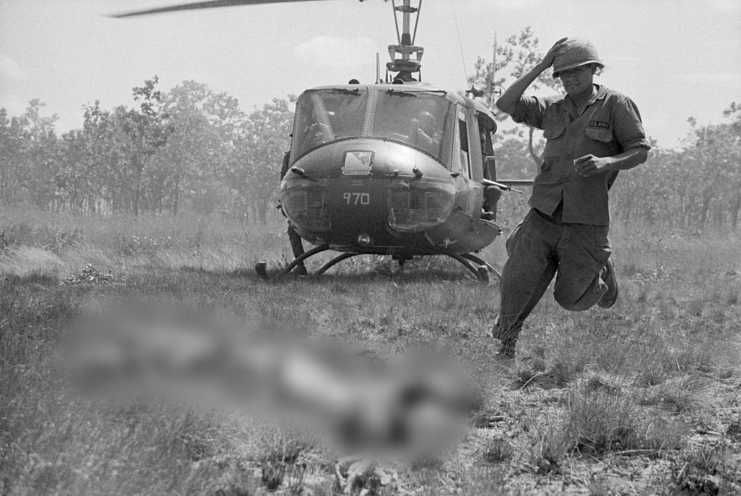
On the second day of fighting, he even went out into the heavy fire to rescue a soldier, Pfc. Jimmy Nakayama. The young private had accidentally fallen victim to a friendly napalm blast and went up in flames. Seeing the scene unfold, Galloway went with the unit medic to provide assistance. When the medic was killed by an enemy sniper, Galloway reached Nakayama on his own and dragged him to safety. Unfortunately, the private died in hospital.
It was for this action that Joe Galloway was awarded the Bronze Star with Valor in 1998, making him the only civilian during the Vietnam War to receive the honor. Of the journalist’s actions, Maj. General Joseph Kellogg said, “At that time and that place, he was a soldier. He was a soldier in spirit, he was a soldier in actions and he was a soldier in deeds.”
We Were Soldiers (2002)
Along with Hal Moore, Joe Galloway wrote about the events of the Battle of Ia Drang in the book, We Were Soldiers Once… And Young, which was adapted into the popular 2002 film, We Were Soldiers. Unlike many military-themed books, which focus on tactics, the men captured the thoughts and feelings of those fighting in Vietnam by interviewing veterans and former NVA officers and incorporating their testimonies into the account.
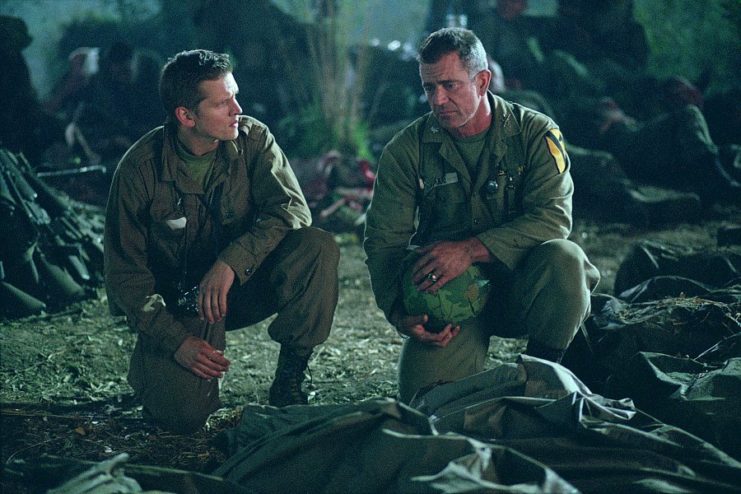
They were both heavily involved in the film adaption, as they wanted to ensure the movie captured the essence of what it was like to serve in Vietnam. We Were Soldiers was well-received by critics, who thought it accurately captured the intricacies of the war – although, many felt the book was far superior.
Moore was played by Mel Gibson, while Barry Pepper portrayed Galloway. This wasn’t the only film Galloway was portrayed in, either. He was a character in In Shock and Awe (2018) and Vietnam in HD (2011), and he narrated the 2014 documentary, A Flag Between Two Families.
Joe Galloway’s later life and career
Although he spent much of his career with UPI, after 22 years Joe Galloway began working for US News & World Report, where he spent a significant amount of time as a war correspondent during the Gulf War.
His final position was as a columnist for McClatchy, owner of 30 American newspapers, writing extensively on the conflict in Iraq. While there, he continued to report from the perspective of the average foot soldier, patroling with the American troops.
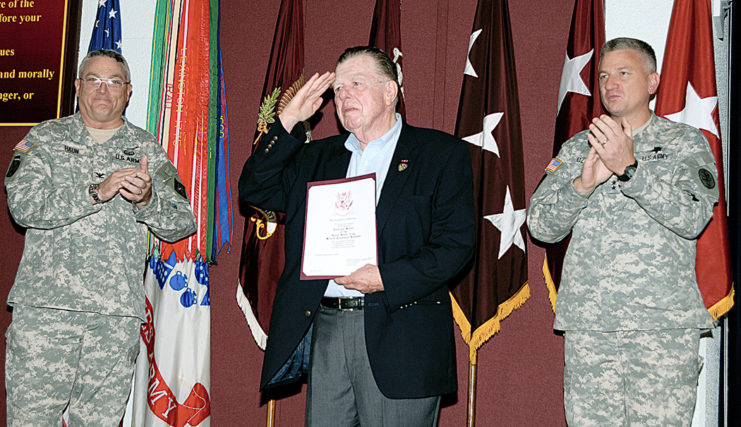
Galloway’s efforts in Vietnam and other wars were honored many times. Among his decorations were the National Magazine Award by the American Society of Magazine Editors, the News Media Award by the Veterans of Foreign Wars, the President’s Award for the Arts by the Vietnam Veterans of America, the Robert Denig Award for Exceptional Service by the US Marine Corps Combat Correspondents Association and the Tex McCrary Award by the Congressional Medal of Honor Society
More from us: MACV-SOG: The Vietnam-Era Special Operators You’ve Probably Never Heard Of
Joe Galloway died on August 18, 2021 and is remembered for his honest reporting and dedication to the stories of those who are so often forgotten. “You do this out of a sense of obligation to those who died and those who lived – those especially. Their battle had been forgotten. You just can’t turn your back on something like that, not if you’ve seen it with your own eyes.”
